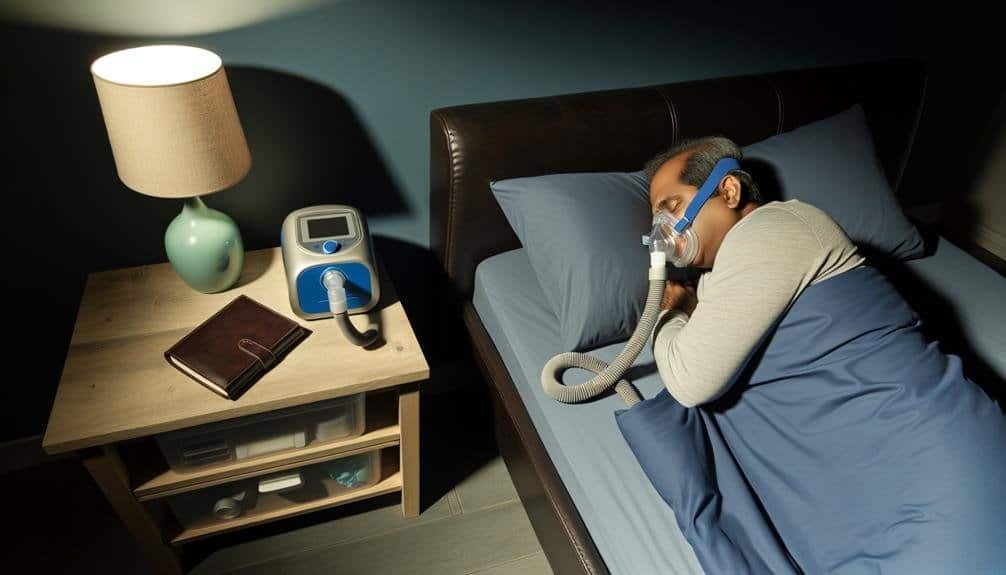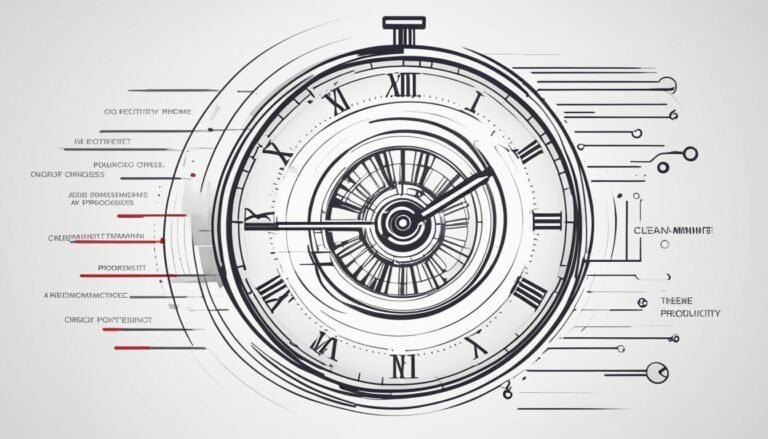What Is CPAP Compliance?
When it comes to CPAP compliance, understanding its importance is key. But what exactly is CPAP compliance?
It refers to the adherence and consistency in using a CPAP machine to treat sleep apnea. However, there is more to it than meets the eye. Factors influencing compliance, benefits of maintaining it, and tips for improvement all play a role in ensuring effective therapy.
In this discussion, you will uncover the significance of CPAP compliance and discover ways to enhance your experience with this treatment.
So, let's dive in and explore the world of CPAP compliance together.
Key Takeaways
- CPAP compliance is crucial for the effectiveness of treatment and improvement of sleep quality.
- Factors such as individual comfort with the mask and airflow sensation, proper mask fit, and side effects can affect CPAP compliance.
- Maintaining CPAP compliance has numerous benefits, including managing sleep apnea symptoms, preventing health complications, and improving overall sleep quality and well-being.
- Tips for improving CPAP compliance include establishing a consistent sleep schedule, seeking support from others undergoing CPAP therapy, and making necessary adjustments to the sleep environment.
Importance of CPAP Compliance
CPAP compliance is crucial for ensuring the effectiveness of your treatment and improving your overall quality of sleep. Non-compliance can have negative consequences, including inadequate relief of sleep apnea symptoms, increased risk of cardiovascular problems, daytime fatigue, and reduced cognitive function. However, there are strategies for improving compliance and maximizing the benefits of CPAP therapy.
One strategy is to educate yourself about the importance of CPAP therapy and how it can positively impact your health. Understanding the potential risks of non-compliance and the benefits of consistent CPAP use can motivate you to adhere to the treatment regimen.
Another important strategy is to find a comfortable CPAP mask and machine that meets your needs. A mask that fits properly and is comfortable to wear can significantly enhance compliance. Additionally, using features like humidification and ramp settings can improve comfort and increase the likelihood of continued use.
Regular follow-up appointments with your healthcare provider can also help improve compliance. These appointments allow for adjustments in pressure settings, troubleshooting any issues, and addressing concerns or difficulties you may have.
Factors Affecting CPAP Compliance
Factors that can impact CPAP compliance include individual comfort, mask fit, side effects, and lifestyle factors.
Here are three factors that can act as barriers to CPAP compliance and strategies for increasing CPAP compliance:
- Individual Comfort: Discomfort with wearing the mask and the sensation of airflow can deter CPAP compliance. To address this, try different mask styles, sizes, and materials to find one that's more comfortable for you. Additionally, using humidification can alleviate dryness and nasal congestion.
- Mask Fit: A properly fitting mask is crucial for effective treatment. If your mask doesn't fit well, it may cause leaks, which can lead to reduced compliance. Regularly check and adjust the mask straps and cushions for a secure fit.
- Side Effects: Common side effects like dry mouth, nasal congestion, and skin irritation can affect CPAP compliance. Using a heated humidifier can help alleviate these side effects. Additionally, nasal sprays or allergy medications can help with nasal congestion.
Benefits of Maintaining CPAP Compliance
Maintaining compliance with CPAP therapy offers numerous benefits for individuals with sleep apnea. It's of utmost importance to adhere to CPAP treatment as prescribed by your healthcare provider.
CPAP therapy has been proven to be highly effective in managing sleep apnea symptoms and improving overall quality of life. By using CPAP consistently, you can experience reduced daytime sleepiness, improved concentration, and enhanced cognitive function.
CPAP compliance also plays a crucial role in preventing serious health complications associated with untreated sleep apnea, such as cardiovascular disease and stroke. Additionally, maintaining CPAP compliance ensures that you receive the optimal therapeutic benefits of the treatment, including improved breathing during sleep, reduced snoring, and better oxygen levels.
Embracing CPAP therapy and staying compliant can significantly enhance your sleep quality and overall well-being.
Tips for Improving CPAP Compliance
To ensure optimal adherence to CPAP therapy, it's essential to implement practical strategies and make necessary adjustments to your routine. Here are some tips for improving CPAP compliance:
- Make sleep hygiene a priority: Establish a consistent sleep schedule, create a relaxing bedtime routine, and ensure that your sleep environment is comfortable and conducive to sleep. This will help improve the quality of your sleep and make CPAP therapy more effective.
- Address lifestyle factors: Lifestyle adjustments such as maintaining a healthy diet, engaging in regular physical activity, and managing stress can have a positive impact on your sleep quality. These changes can also help reduce the symptoms of sleep apnea and make CPAP therapy more tolerable.
- Seek support: Joining a support group or connecting with others who are also undergoing CPAP therapy can provide encouragement and help you stay motivated. They can offer practical tips and share their experiences, making it easier to adapt to and comply with CPAP therapy.
Monitoring and Tracking CPAP Compliance
One effective method for ensuring CPAP compliance is through the monitoring and tracking of usage data. By tracking CPAP usage, healthcare providers can gather valuable information about a patient's adherence to their therapy, allowing for timely intervention and support.
Tracking CPAP usage involves collecting data on the number of hours a patient wears their CPAP mask per night, as well as any periods of non-compliance or mask removal. This data can be obtained through the use of specialized CPAP machines that have built-in data recording capabilities.
Conclusion
In conclusion, maintaining CPAP compliance is crucial for individuals with sleep apnea to effectively manage their condition and improve overall health.
A staggering statistic reveals that non-compliance with CPAP therapy leads to a fourfold increase in the risk of heart disease. This alarming fact emphasizes the importance of adhering to CPAP treatment, as it can significantly reduce the potential for serious cardiovascular complications.
By following the tips and strategies mentioned earlier, individuals can enhance their CPAP compliance and safeguard their well-being.







